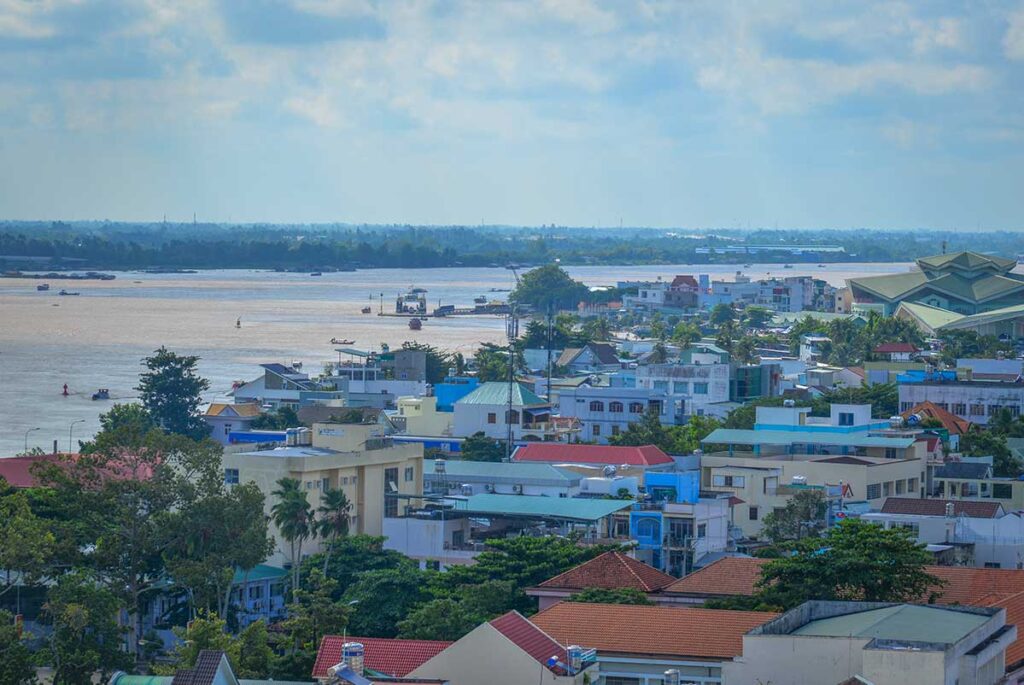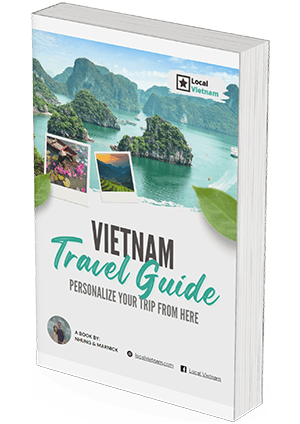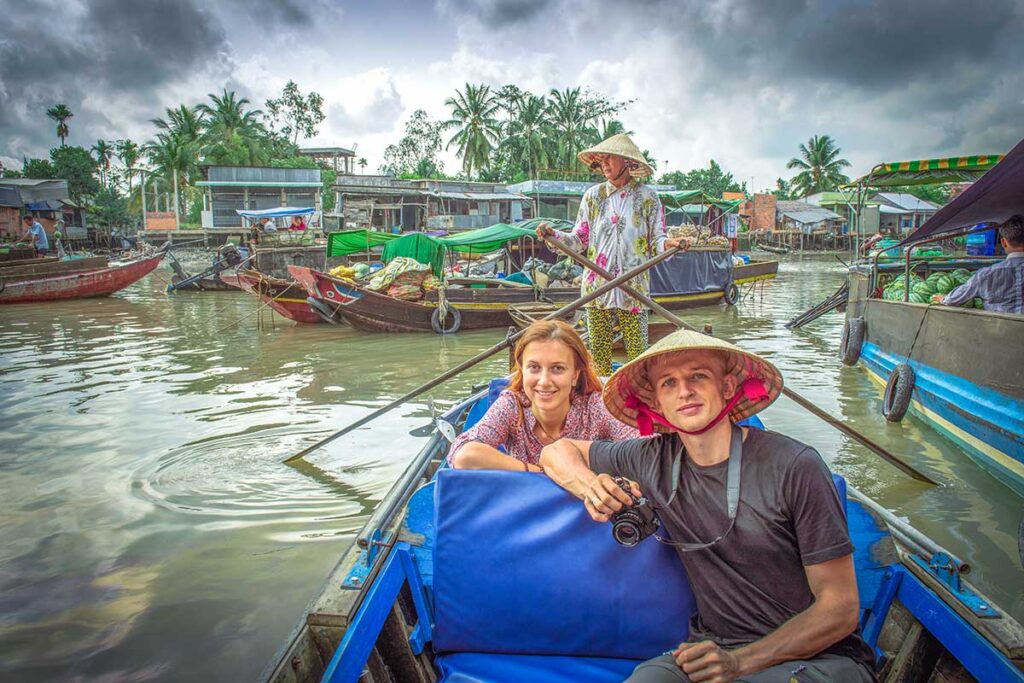Long Xuyen – A quiet Mekong city
Long Xuyen sits on the banks of the Hau River in Vietnam’s Mekong Delta and serves as the capital of An Giang Province. It’s a mid-sized city with a working character, built around its wholesale markets, rice trade, and basa fish industry. Unlike Can Tho or Chau Doc, Long Xuyen has never been developed for tourism and instead feels like a place where people live, work, and study.
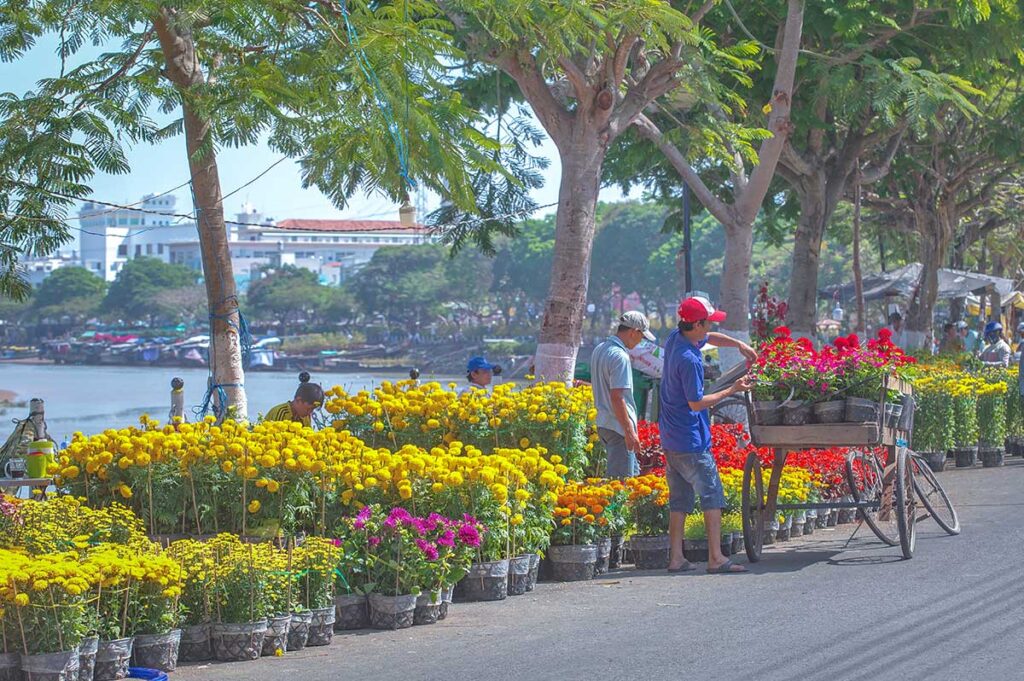
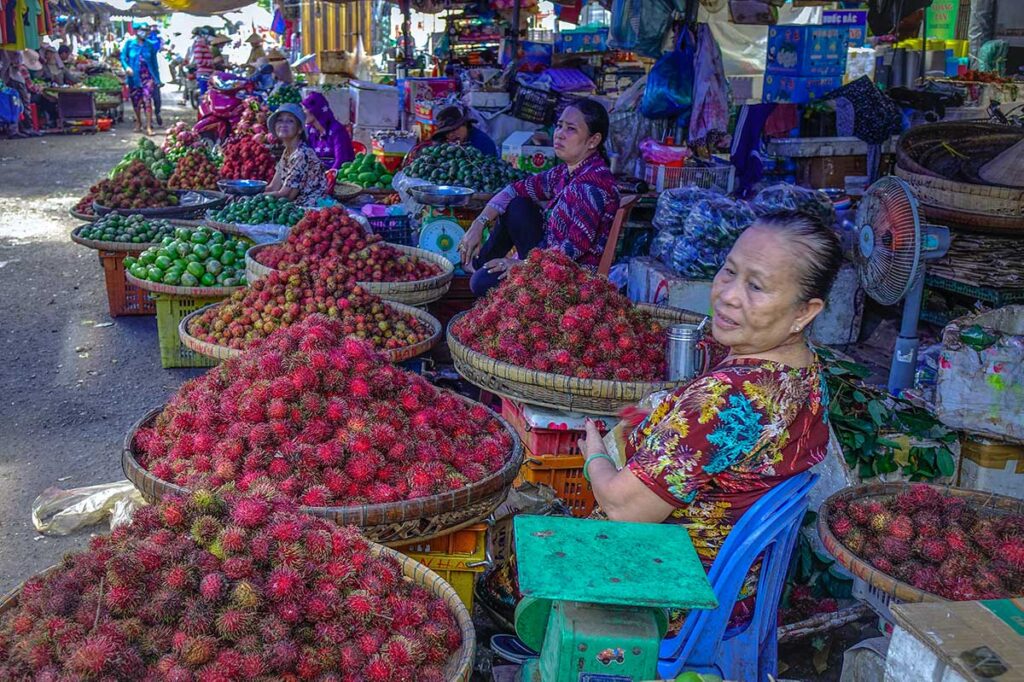
Historically, the city is known as the birthplace of President Tôn Đức Thắng, and despite being an important provincial center, it was only granted official city status in 1999. Today it’s home to An Giang University, giving the city a noticeable student presence, and its population is a mix of ethnic Vietnamese, Khmer, and Chinese communities. Religious diversity is part of daily life here, with Catholic churches, Hoa Hao Buddhist followers, and even a Cao Dai temple. While Long Xuyen itself doesn’t have dramatic landscapes or a long list of attractions, its authentic atmosphere and central location make it a practical base for exploring An Giang’s countryside and nearby sights.
Best things to do in Long Xuyen
1. Long Xuyen Floating Market
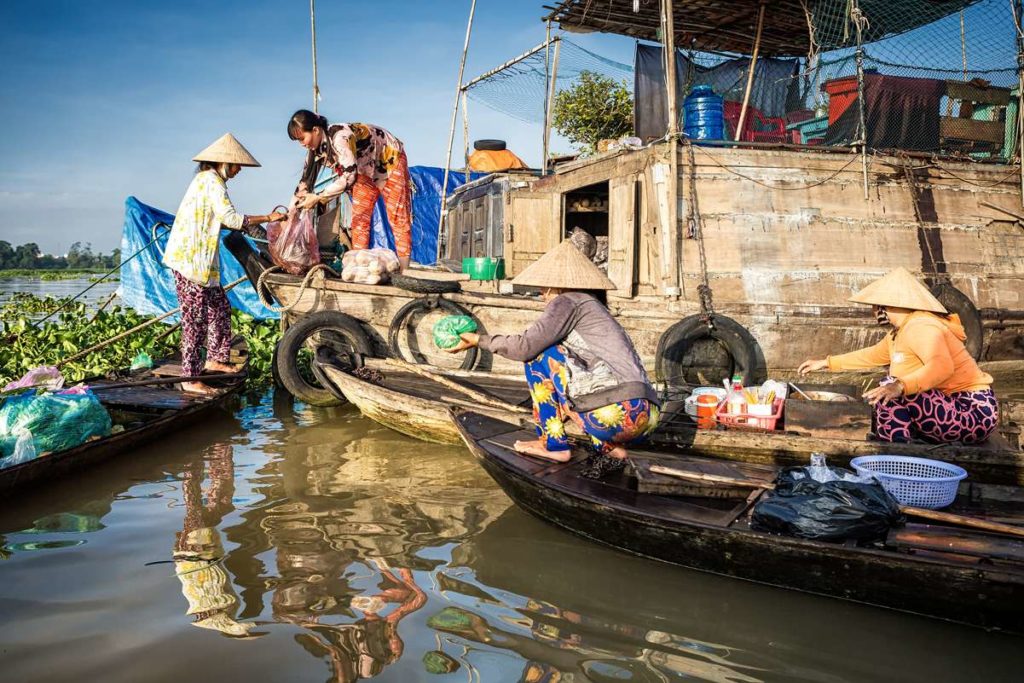
The main reason most travelers come here is the Long Xuyen Floating Market. It’s not as large or lively as Cai Rang near Can Tho, but that is exactly what makes it interesting. Most of the boats belong to locals selling fruit, vegetables, and household goods to each other, giving the market a much more authentic feel.
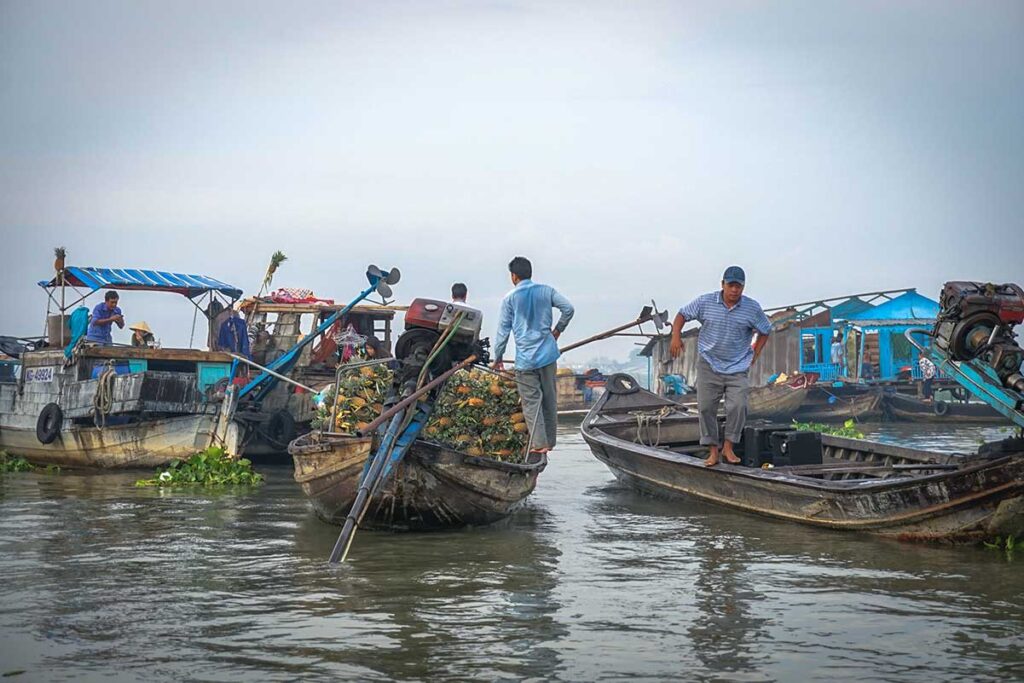
The best time to go is between 5:30 and 7:00 in the morning, when trading is busiest. Hiring a small boat costs only a few dollars and usually includes a bowl of noodle soup or coffee served directly on the river. Don’t expect hundreds of tourist boats—this is a small-scale, everyday market—but it’s a peaceful and worthwhile glimpse into Mekong life.
2. Long Xuyen Central Market
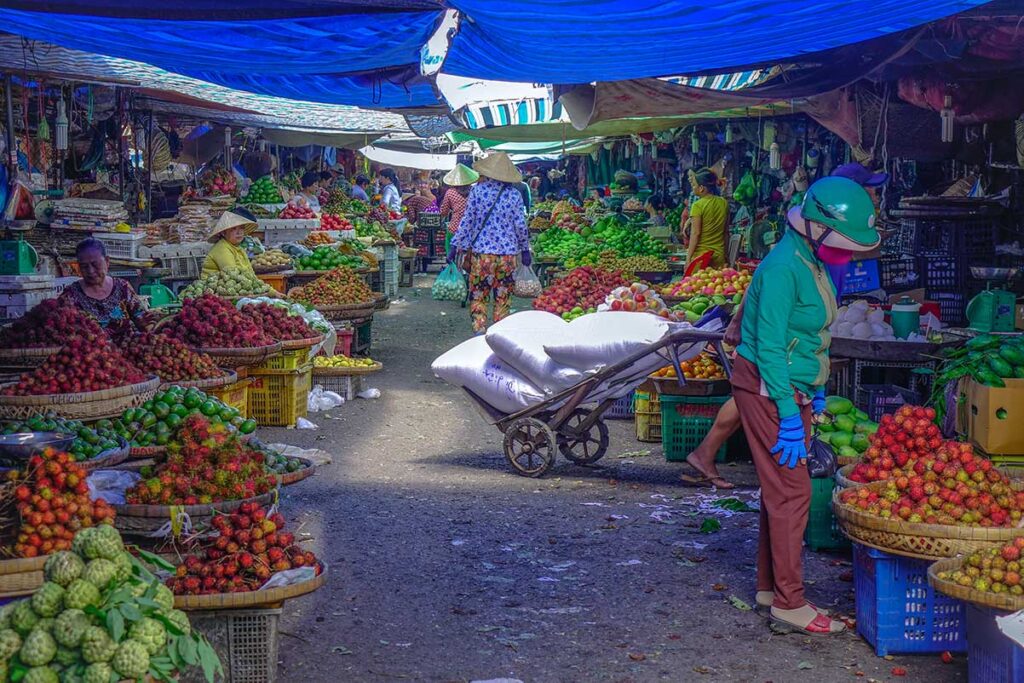
Just a short walk from the river, this is the city’s main land market and one of the largest in An Giang. It’s a chaotic mix of wholesale trading, wet market stalls, and vendors selling everything from tropical fruit to fresh fish. The combination of riverboats docking and traders unloading goods makes it a busy scene that feels very real and not set up for visitors. It’s best explored in the morning when activity is at its peak. Bring small change and an open mind—the smells and sights can be intense but rewarding.
3. An Giang Museum
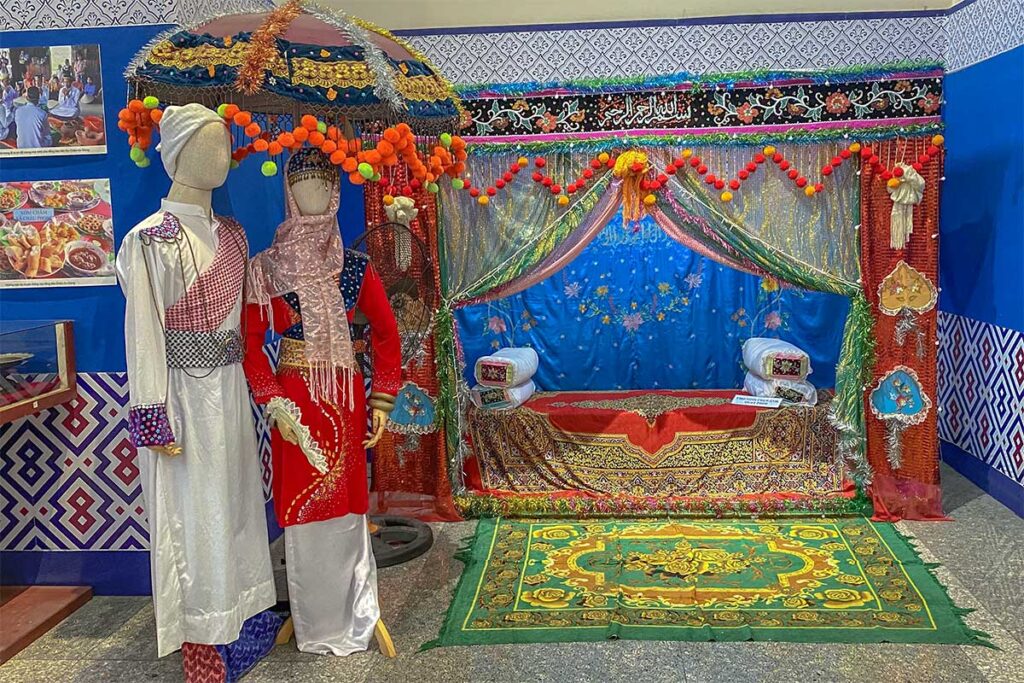
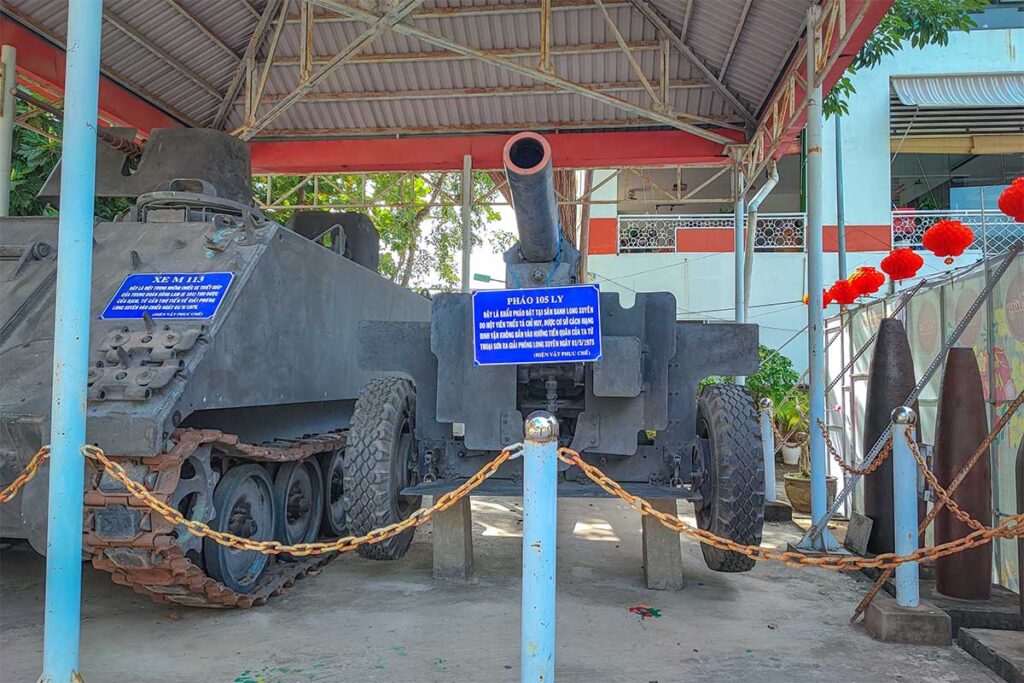
For those interested in history and culture, the An Giang Museum is a worthwhile stop. Exhibits cover the ancient Óc Eo culture that once flourished in the Mekong Delta, the province’s role during the Vietnam War, and displays about President Tôn Đức Thắng, who was born nearby. The museum is small but informative, and entry is usually free. It’s open during standard office hours, with a break at lunchtime, so plan accordingly.
4. Canton Assembly Hall & Chinese Temples
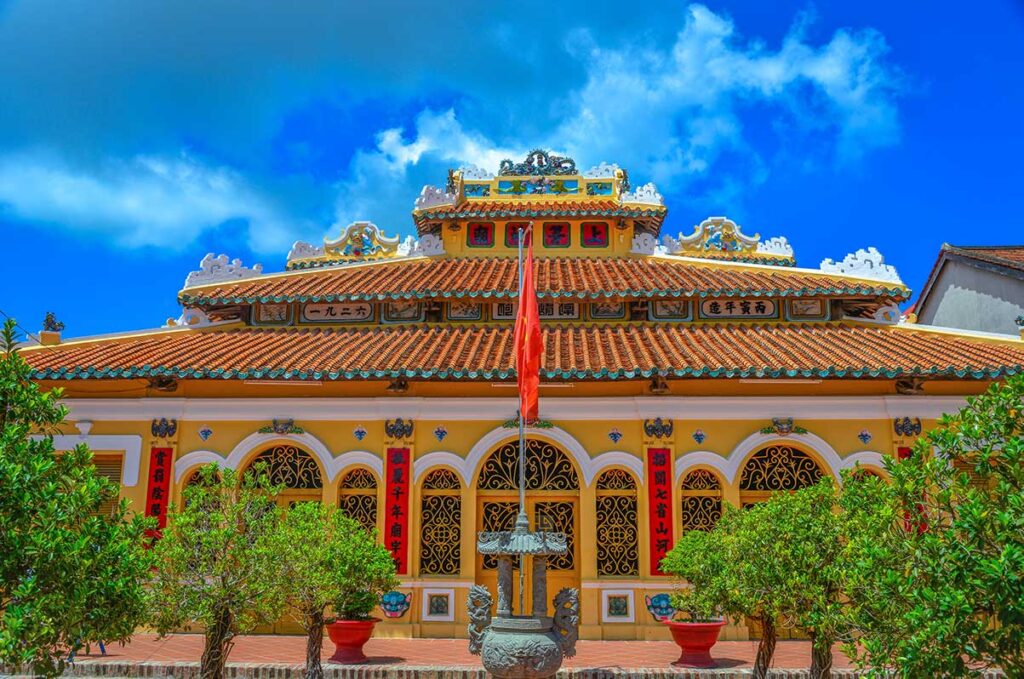
Long Xuyen has a notable Hoa (Chinese-Vietnamese) community, and the Canton Assembly Hall is one of its most colorful landmarks. The temple is decorated with bright tiles, statues, and traditional motifs, making it photogenic even if you don’t spend much time inside.
Around the hall you’ll also find a handful of other small Chinese temples, adding to the city’s multicultural character. Stop by in the morning when food vendors set up outside the entrance, giving the place even more atmosphere.
5. Explore Tiger Island (Mỹ Hòa Hung)
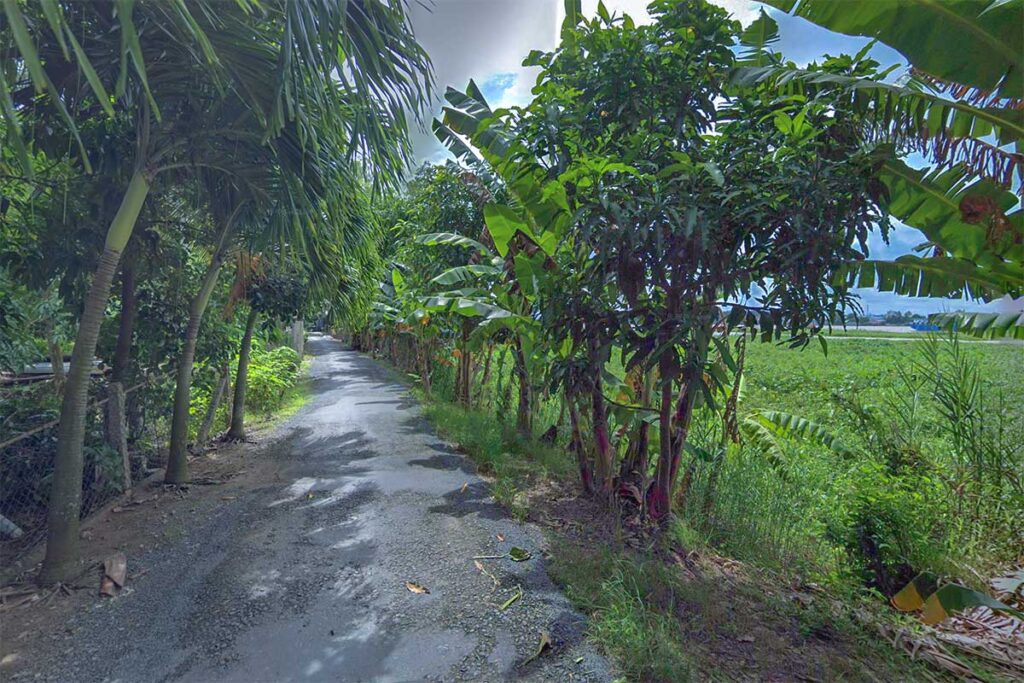
Tiger Island, also known as Mỹ Hòa Hưng, is a short ferry ride from the city. It’s a quiet island with small villages, fruit gardens, and the Tôn Đức Thắng memorial house, which honors the former president.
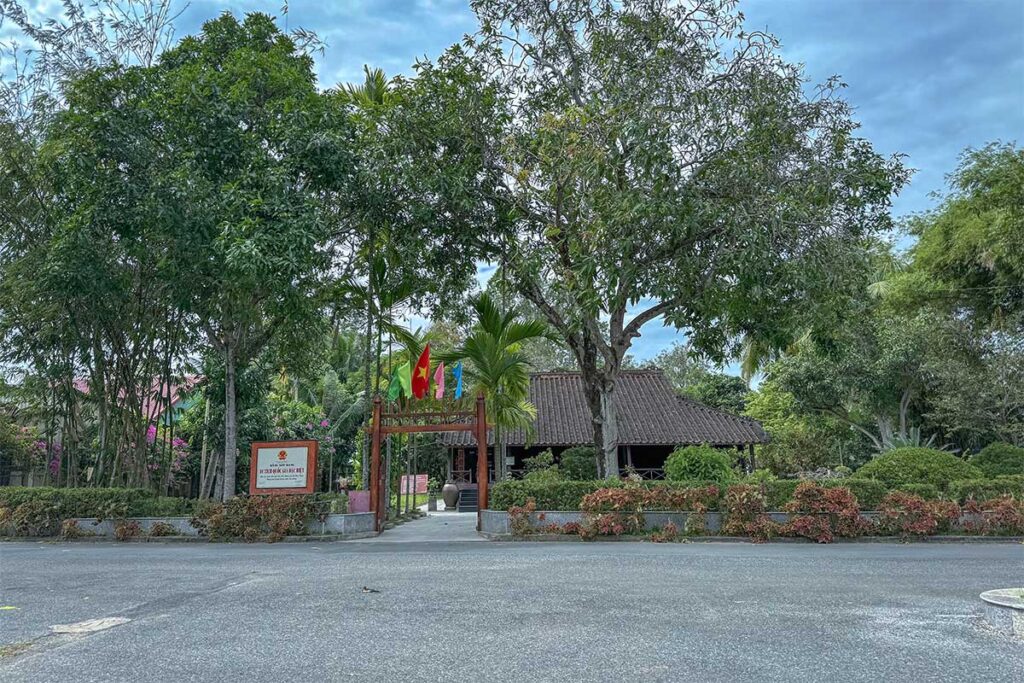
Renting a bicycle or motorbike is a good way to explore, as the roads are flat and shaded. There are also local markets and small eateries that make for relaxed stops. Don’t come expecting major attractions—it’s more about a calm countryside feel and glimpses of rural Mekong life.
6. Relax at Nguyen Du Park & Riverside
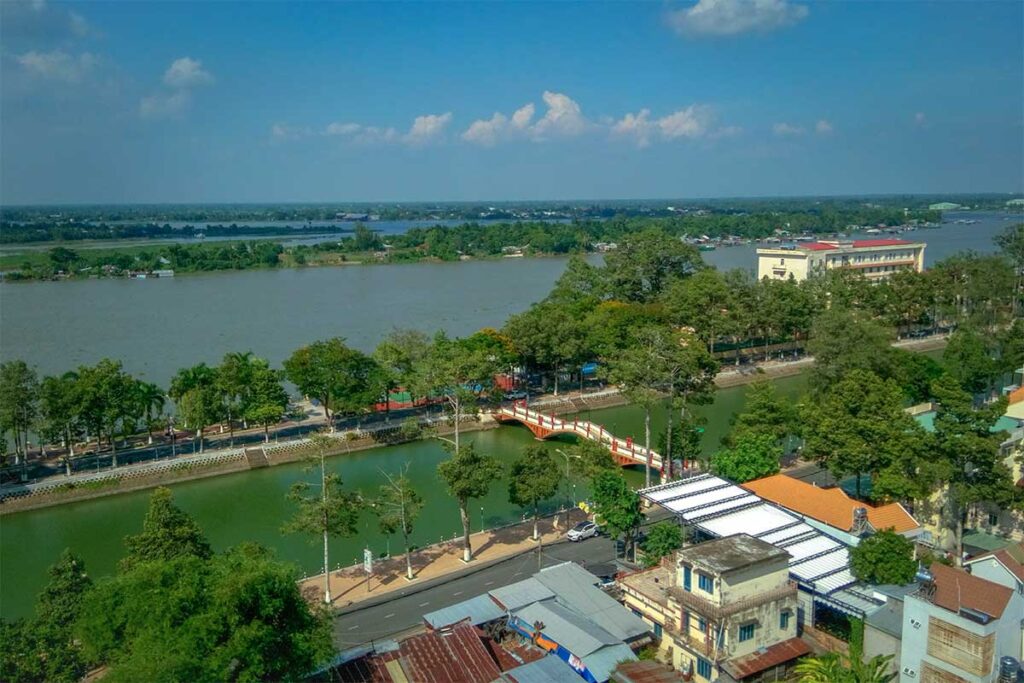
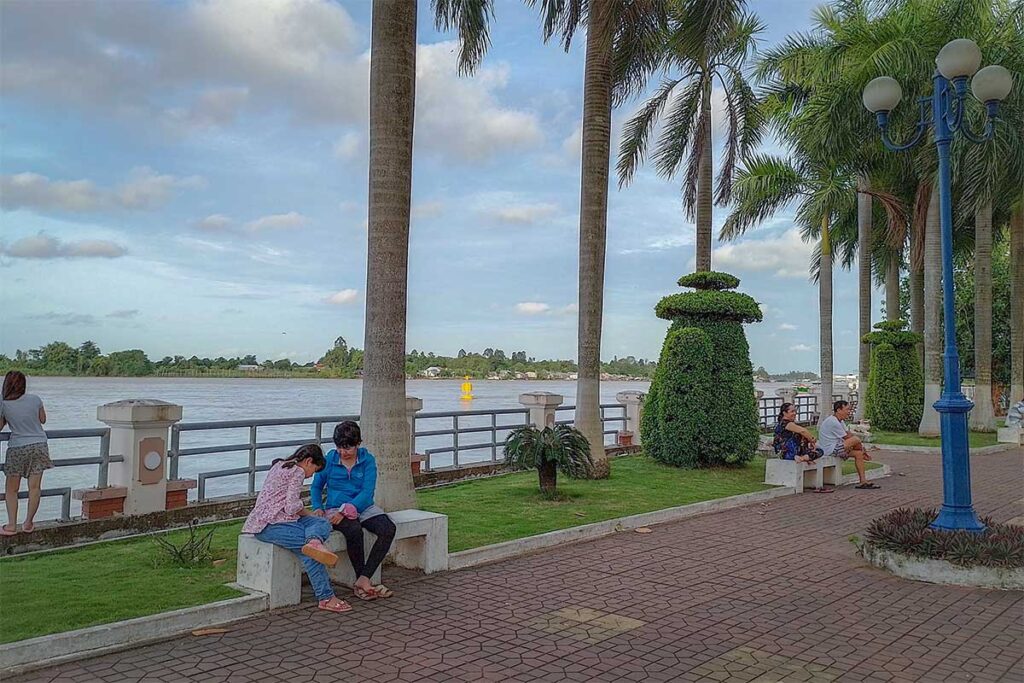
If you’re in the city in the late afternoon, Nguyen Du Park is where locals gather. There’s a small lake with food and drink stalls, benches shaded by trees, and kids fishing at the water’s edge. It’s not a “must-see,” but it gives you a chance to experience Long Xuyen’s social life. Bring a cold drink, find a seat, and watch the sunset over the river while the city slows down for the evening.
7. Street food & Local specialties
Eating is one of the best parts of being in Long Xuyen. The city is known for bún cá Long Xuyen, a noodle soup made with snakehead fish and a slightly sour tamarind broth. Another favorite is cơm gà, a plate of fried chicken served with broken rice. In the evenings, head to Le Minh Nguon Street and the surrounding alleys for affordable street food and small restaurants. Don’t expect much English on the menus, but pointing and tasting your way through is half the fun.
Day trips & Things to do around Long Xuyen
While the city itself is fairly low-key, Long Xuyen makes a convenient base for exploring some of the Mekong Delta’s more scenic and unique spots. Here are a few worthwhile day trips and nearby destinations, with approximate travel times.
1. Tra Su Cajuput Forest (2 hours)
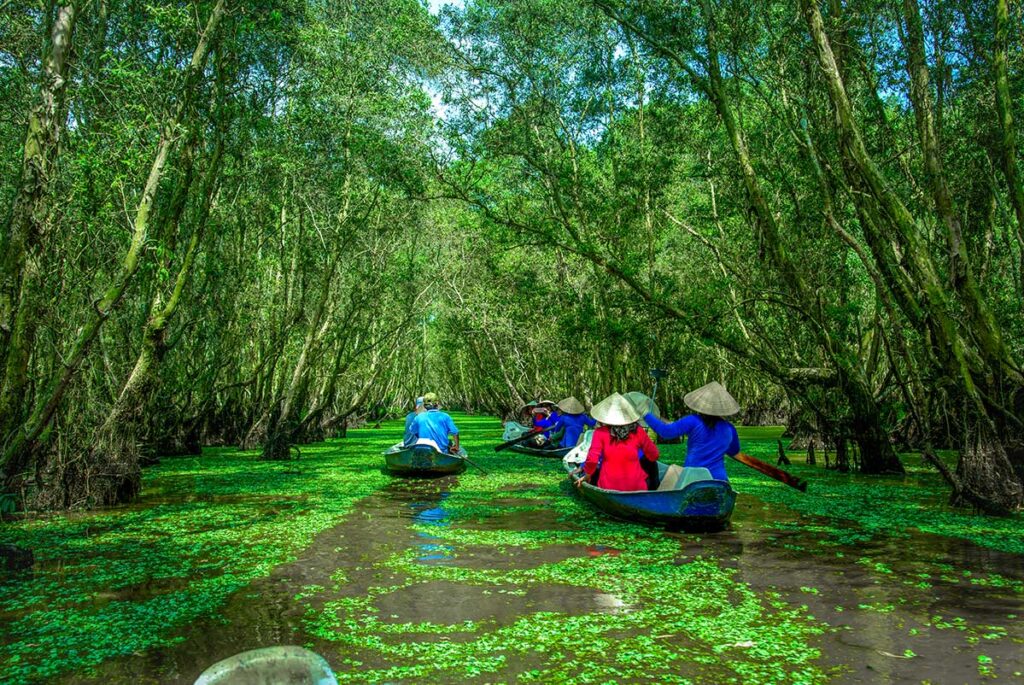
One of the most famous sights in An Giang, Tra Su is a flooded forest best explored by small paddle boat. Gliding through the canals lined with green duckweed feels like entering another world, and if you’re lucky you’ll spot storks, egrets, or other birdlife. It takes about two hours by car or motorbike to reach the forest from Long Xuyen, so plan half a day or more. Facilities are basic, and the area is more about nature than comfort, but it’s a memorable experience if you enjoy wetlands and quiet scenery.
2. Bang Lang Stork Sanctuary (30 minutes, Can Tho Province)
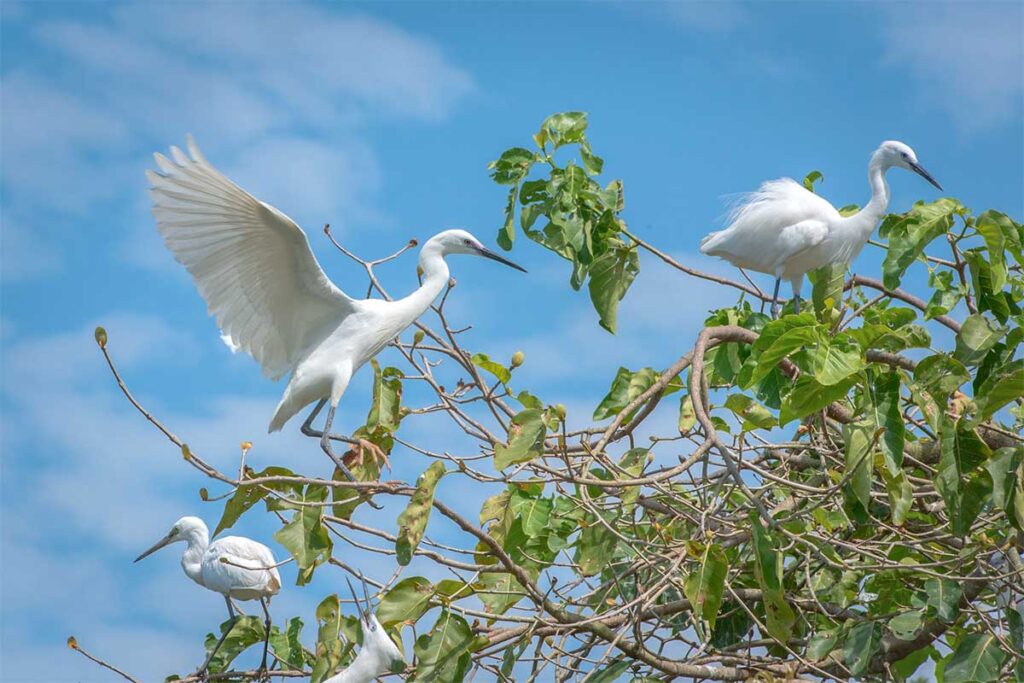
Closer to Long Xuyen than to Can Tho itself, Bang Lang Stork Sanctuary is best visited at sunrise or sunset when thousands of birds either leave or return to their nests. It’s essentially a large garden where storks and herons gather, and while not everyone finds it thrilling, bird lovers and photographers usually enjoy it. The sanctuary is about 30 minutes by road, making it an easy side trip. Don’t expect polished tourist infrastructure—this is more of a local conservation area than a polished attraction.
3. Ta Pa Rice Fields & Pagoda (1.5 hours)
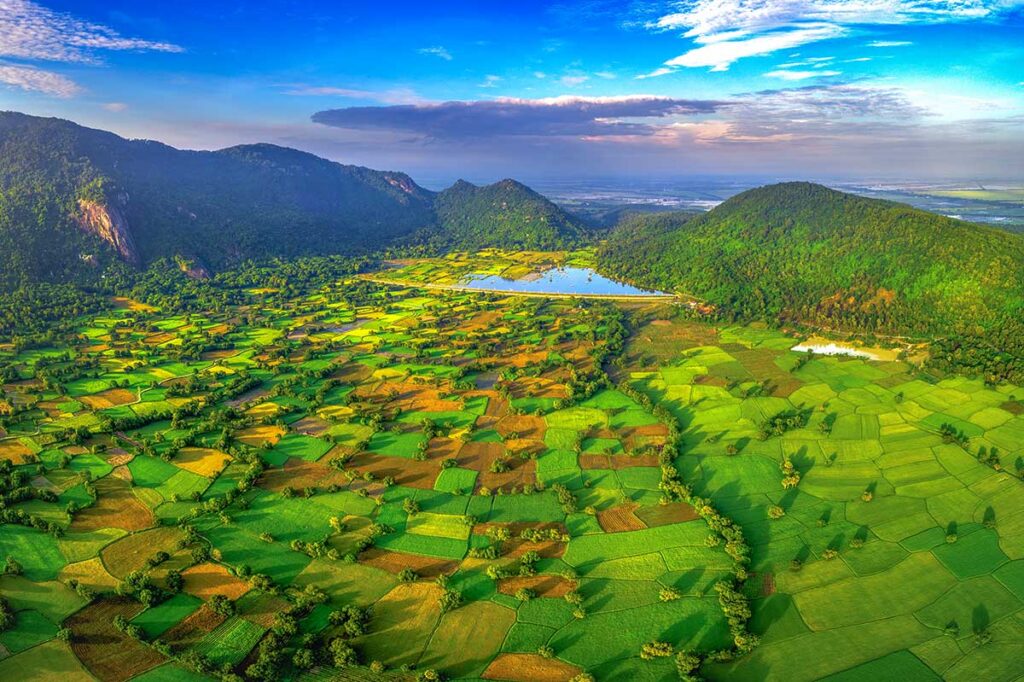
The Ta Pa area, part of the Seven Mountains region of An Giang, is one of the few places in the Mekong Delta where you’ll see small hills breaking up the otherwise flat landscape. At the base is a Khmer-style pagoda, and nearby is a small but striking lake with jade-colored water. The road up the hill is rough and only suitable for motorbikes or on foot, so don’t plan on driving up in a car. The main draw is the combination of rice fields, sugar palms, and the elevated views, which are especially beautiful during the harvest season.
4. Sa Dec (1 hour)

About an hour from Long Xuyen, Sa Dec is known for its flower village, which bursts into full bloom in the weeks before Tet (Lunar New Year). Outside the flower season, Sa Dec still has charm thanks to its riverside setting and the Huynh Thuy Le Ancient House, made famous by Marguerite Duras’ novel The Lover. Sa Dec is small enough to explore on foot or by bicycle, and it makes a pleasant cultural stop if you’re traveling between Long Xuyen and Dong Thap.
5. Tram Chim National Park (2 hours)
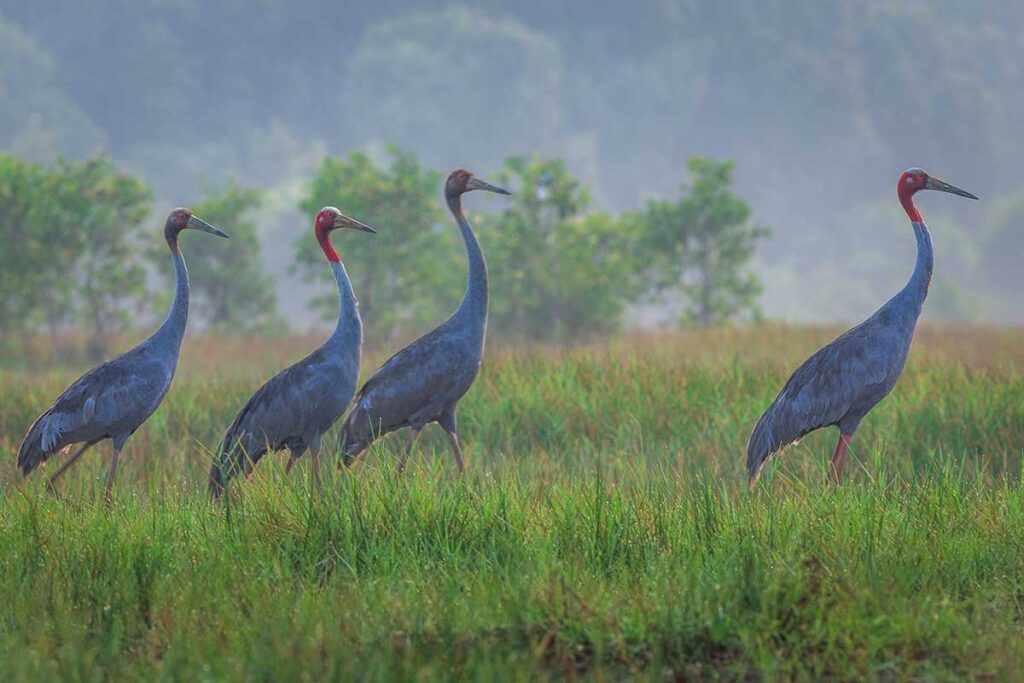
Tram Chim National Park is a wetland reserve and one of Vietnam’s top birdwatching areas, home to dozens of species including the rare sarus crane (best seen around March–April). Visitors can take boat rides through the park’s mosaic of lotus ponds, grasslands, and mangroves. The experience is quiet and low-key, centered around nature rather than facilities, so it’s best suited for travelers who appreciate wildlife and wide open spaces. From Long Xuyen, expect around a two-hour drive each way.
How to get to Long Xuyen
By bus
Buses are the most common way to reach Long Xuyen. From Ho Chi Minh City, the trip takes around 6 hours, with several companies running daily services. Tickets are inexpensive, though comfort levels vary depending on whether you book a standard sleeper bus or a more modern limousine-style van. From Can Tho, it’s just about an hour, and from Chau Doc roughly 1.5 hours, making Long Xuyen an easy stop when traveling within An Giang Province.
By private car/driver
Hiring a private car with driver is the most convenient option, especially if you want to stop at attractions along the way. It allows you to combine the transfer with visits to Sa Dec, Tra Su Cajuput Forest, or other sites in An Giang. This is more expensive than the bus but worthwhile if you prefer flexibility, comfort, or are traveling as a small group.
By motorbike
Some travelers choose to ride by motorbike, either from Ho Chi Minh City or as part of a longer Mekong Delta loop. The roads are mostly flat, but the journey is long, and traffic near big cities can be hectic. It’s best attempted only if you have a proper license, experience, and ideally a few days to break up the ride. As a road trip, it can be rewarding, but it’s not the most practical way for most visitors.
By cruise
A few Mekong Delta overnight cruises include Long Xuyen as part of their itineraries, usually on routes connecting Can Tho and Chau Doc. These cruises aren’t the mainstream tourist boats you see around My Tho or Cai Be, but more specialized multi-day journeys that stop in less-visited places. If you happen to be on one of these, Long Xuyen is often included as a stop for the floating market or a walk through the city’s central market. It’s not a common way to arrive, but it is an option if you’re planning a broader Mekong cruise experience.
How to get around
Within the City
Getting around Long Xuyen itself is straightforward but not particularly scenic. Taxis and Grab (the local ride-hailing app) are cheap and reliable for short hops between the riverfront, markets, and your hotel. Walking is possible along the river and around Nguyen Du Park, but most of the main sights are spread out. If you do want to explore on foot, keep it to specific neighborhoods rather than trying to cover the city end-to-end.
Around the region
To explore the countryside and nearby attractions, you’ll need more than just taxis. Hiring a private car with driver is the easiest way to reach places like Tra Su, Sa Dec, or Tram Chim National Park, especially if you want to see several in one day.
Motorbike rentals are also an option, giving you more flexibility for day trips to Tiger Island or the surrounding rice fields, but be aware of traffic and road conditions. For shorter distances, cycling can be enjoyable—particularly on Tiger Island or in rural villages around the city—though basic bicycles from guesthouses are usually only good for light trips, not longer journeys.
Where to stay in Long Xuyen
Accommodation in Long Xuyen is straightforward and mostly geared toward domestic travelers, so don’t expect the same variety you’d find in places like Can Tho or Chau Doc. Still, there are enough options for a comfortable stay if you plan to spend a night or two here.
In the city center, areas like My Binh and My Long are convenient. This is where you’ll find mid-range hotels, smaller guesthouses, and easy access to markets, cafés, and the riverfront. Standards vary, but most places are clean and affordable, with air-conditioning and basic amenities.
For something more personal, there are a handful of homestays outside the city, where you can experience a quieter countryside setting. These are best if you’re looking for a slower pace, cycling through villages, or staying closer to the rice fields rather than the main streets. English is less commonly spoken, so a translation app can come in handy.
If your main focus is exploring the region rather than the city itself, you might also consider Chau Doc, about 1.5 hours away. Chau Doc has a wider range of hotels, riverside stays, and more developed tourist infrastructure. Long Xuyen works well as a base if you prefer fewer tourists and a more local city feel, while Chau Doc is the better choice if you want more comfort and variety in accommodation.
Is Long Xuyen worth visiting?
Long Xuyen is worth visiting if you enjoy authentic, everyday Vietnamese cities that haven’t been shaped much by tourism. It offers a window into local life in the Mekong Delta, from the floating market to busy wholesale trading and small student cafés. As a base, it’s also convenient for exploring wider An Giang province.
That said, Long Xuyen is not a destination for everyone. The city itself doesn’t have dramatic scenery—those landscapes are better found around Tri Ton or Chau Doc. If you’re looking for postcard views or a polished tourist scene, you may leave underwhelmed. But if you value culture, daily life, and a more off-the-beaten-track atmosphere, Long Xuyen is a rewarding stop.
